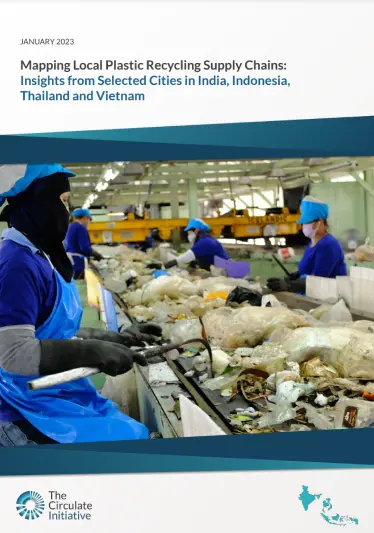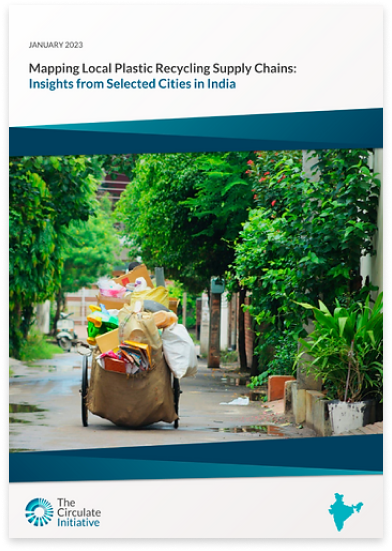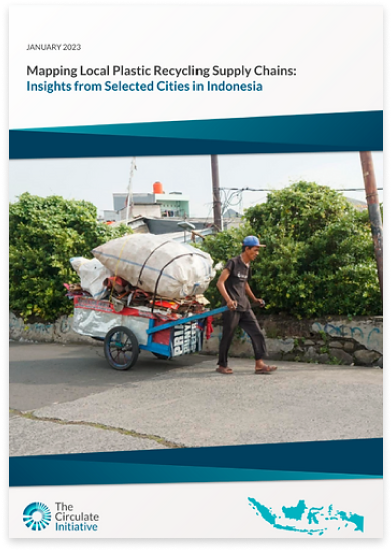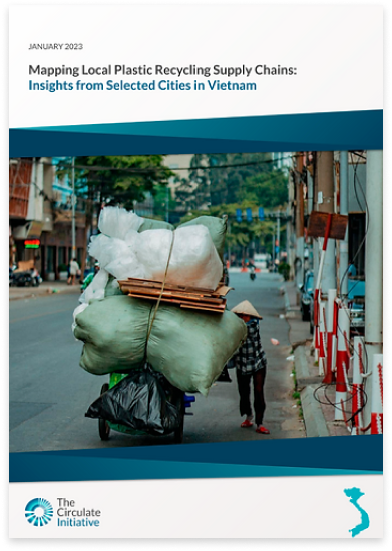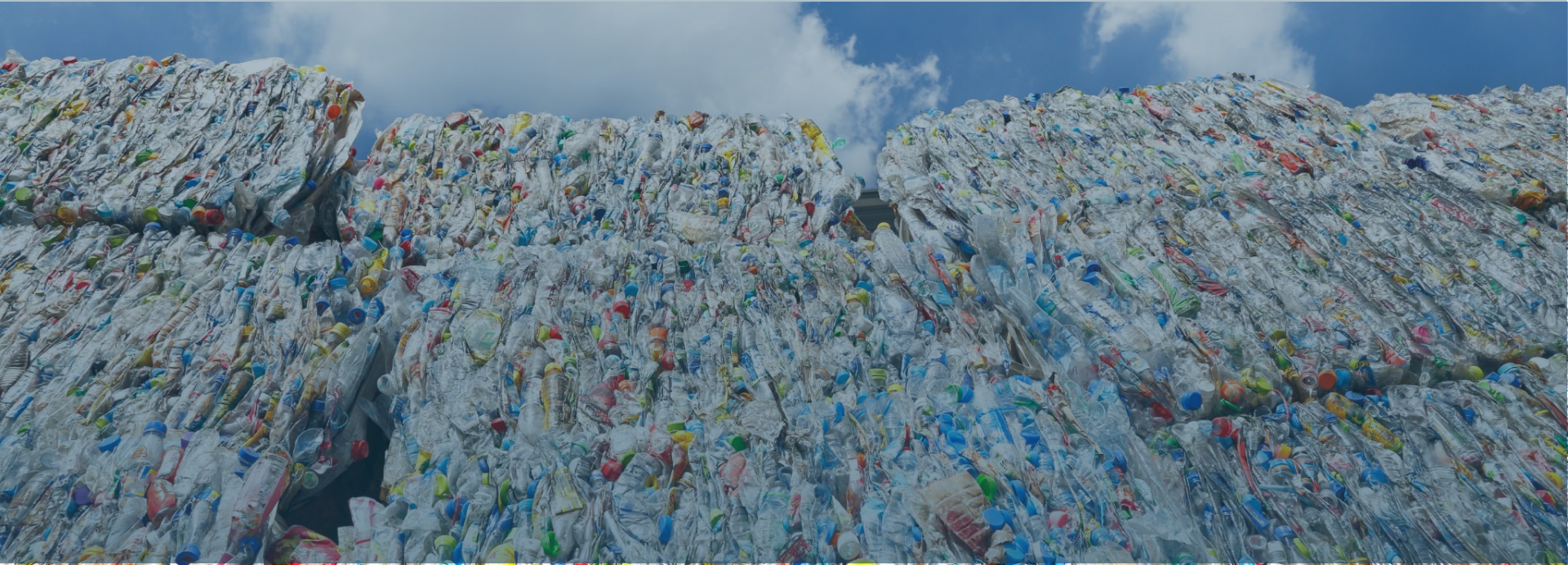

Mapping Local Plastic Recycling Supply Chains: Insights from Selected Cities in Thailand
Thailand has high domestic demand for recycled plastics, which could be further propelled by the lifting of a ban on the use of recycled materials for food packaging. In the reviewed wastesheds of Bangkok, Chon Buri, and Rayong, there is an established and growing national recycling infrastructure, operated by local and international players, but collection of recyclables is still heavily reliant on the informal sector, locally known as salengs.
This report further details the findings from the wasteshed assessments in Thailand, offering insights into how the local plastic waste recycling supply chains typically operate and areas for intervention.
Key takeaways from this report include:
- Compared to Bangkok and Rayong, Chon Buri has less formal waste recycling infrastructure but it has many junk shops, resulting in competition for material.
- Source separation of recyclables is increasingly being encouraged across the wastesheds; for example, through the Rayong model, a public-private partnership aimed at educating the public on waste segregation at source. The model has been successful in facilitating increased formal collection of plastic waste but reported amounts have fallen short of targets.
- Improving sorting at source, as well as introducing additional segregation of plastics (through increased funding or tax relief) at key transfer stations before landfills / waste-to-energy treatment plants, is crucial to scale up recycling.
- Digital interventions, such as a national or regional virtual marketplace, will help to improve supply chain security in the long-term through pricing transparency and increased access for buyers of the material.
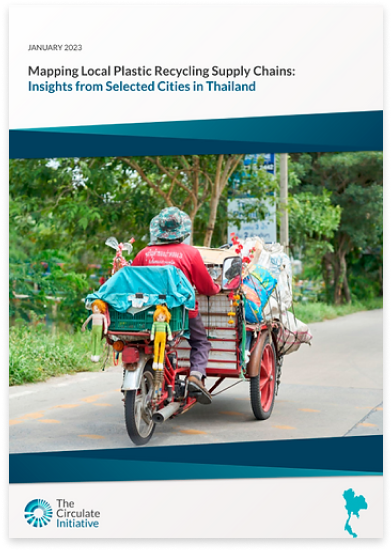
Read Report
*By clicking the "Download" button, you are agreeing to The Circulate Initiative’s Terms of Use and Privacy Policy.
